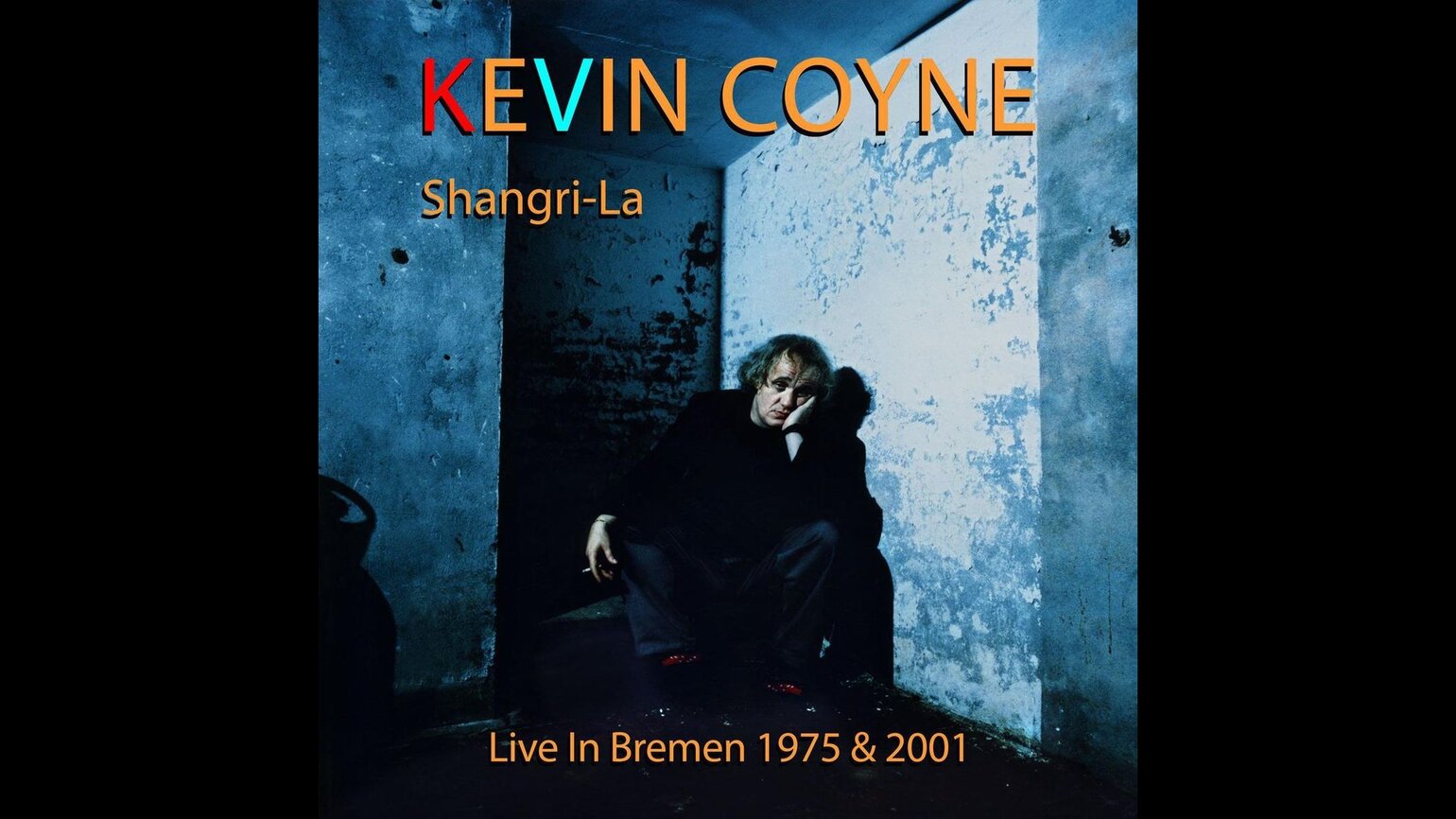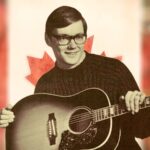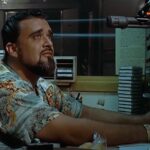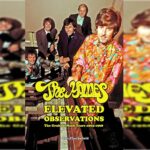
Kevin Coyne returns posthumously via two choice Bremen recordings that trace his trajectory from deranged barroom philosopher to wheelchair-bound prophet. Coyne wasn’t just a singer, he was a derailed preacher with a paintbrush and a knuckle-duster, a punk before punk, a bluesman of council flats. Brian R. Banks digs in with scholarly empathy and hears not just the racket and rage but the soul-scraping sorrow beneath.
Kevin Coyne: Shangri-La, Live in Bremen 1975 & 2001 (MIG00062)
It’s twenty years since Kevin Coyne popped up the road to the pub that has no closing time, and his shuffle still reverberates down decades as a musician, writer and artist of that rare ilk marked as principled, socially aware and without ego posturing. Many appear around the corner along our route to find a niche and plough their furrow that might become a rut ever after—with their own worth of course, such as Leonard Cohen, Tim Buckley or Dylan—whereas Kevin Coyne harvested new pastures while taking in a view lined with various perspectives.
This is seen on two recordings a quarter of a century apart, professionally recorded by Radio Bremen and issued there by the interesting MIG (Made in Germany) label as a two-hour-plus double with an English booklet that excludes history. This master who ad libbed sound and lyric never played the same song twice but as a fresh canvas, from brooding almost menacing yet beautiful (sometimes breathtaking) ballads to blues, soul, rock ‘n’ roll to strident rock his own way. Few like that outsider can articulate rage and despair as if cauterizing nerve-ends: music wasn’t escapism but a revolt against life in the raw, a romantic with a knuckle duster in his back pocket just in case. As the great writer J.-K. Huysmans said, roots help us to track the tendrils of later life, career and legacy.
Born in January 1944, he was the youngest of three to Arthur, a painter-decorator, and a Catholic Irish mother known as “big” Lou in a council house in the rougher part of Derby, hence a Catholic school where he was bullied. It is even mentioned on this live recording. Musical tastes were set early with life-long respect for Robert Johnson, the blues legend, Chuck Berry and Elvis Presley (he recorded an unaired show about him called Fat Old Hero) and later John Lee Hooker, Capt. Beefheart and Kevin Ayers as the ’60s developed. But life was never easy or clear for an intense individual seeking expression, immersed in creativity as a kind of therapeutic essence that welcomed performing for the people who were always more than just an audience.
Kevin’s brother was a jazz musician, his sister became an opera singer, and he played in local band the Vulcans while exploring graphics at art school. His first wife Lesley was met there, marrying in 1965 followed by sons Eugene then Robert after they moved to Clapham in south London (both would share their father’s legacy years later). Kevin, having worked as an art therapist at a Preston psychiatric hospital when still up north (1965-8), helped addicts (and himself) as a counsellor incorporating his art while in London.
Language functioned as a wordsmith’s craft, and he approached the stage as an entertainer he once said. These key creative elements are reflected in his first albums for Dandelion with Siren and a classic solo debut, tellingly titled Case History, both of which feature here. He was the second signing to Virgin Records that started in a beanbag music shop above a boot-sellers in Oxford Street I recall. Recording the classic double Marjory Razorblade (1973), Mike Oldfield was next door for the multi-platinum Tubular Bells. Coyne was invited to guest but declined to be on “ice-cream music” he once said. (Appropriately for the teddy bear collector, his last LP for them was Millionaires & Teddy Bears in 1979; its Having A Party is said to be a satire on Branson.)
In 1973 Coyne appeared on the BBC’s still-viewable Old Grey Whistle Test while devoting more energy to theatre writing and performing. In this period, he was supported by the nascent Sex Pistols at the Lyceum in 1976, when Johnny Rotten praised the headliner on Capital Radio. A shared trait at least was Coyne’s preference for one-take-only studio recording, even asking that outtakes be wiped. All his work was spontaneous, even off the cuff, but always worth saying that remains so still. Nine albums (among which was Sanity Stomp, one LP of a double with the punksters The Ruts and the other with Robert Wyatt of Soft Machine) plus compilations and a live debut In Living Black & White with Zoot Money and Andy Summers which briefly raised his profile, with his own take on Dylan’s Knocking On Heaven’s Door, a poignant version of which is here too.
In fact, this recent release’s first CD predates that well-reviewed English issue by less than a year with the same band. Both CDs feature work across his career, by 1981 signing to the new avantgarde Cherry Red label (who released this century the excellent Nobody Dies In Dreamland, home recordings from 1972 curated by his son) then on Ruf Records and others. Sanity Stomp (1980) was recorded during a time when mental issues were too close to the surface, he later confided. In 1979 his father suddenly died and in the next decade his mother passed too, then he underwent a painful divorce resulting in separation from his children, finally quitting alcohol in ’87 and smoking when 53. Sunday Morning Sunrise on CD1 is about his English family which endured a difficult time with his drinking after Virgin tours when the label pressured him to be ‘the new Joe Cocker’. There is a story that the Doors’ manager invited him to replace Jim Morrison, but Coyne (thinking it a wind-up) said he didn’t like leather trousers! That band were also on Coyne’s state-side label Elektra at the time.
Whilst in a squat in Nuremberg, Bavaria with no guitar, a time when existing rather than living, he met in 1986 and was literally saved by Helmi Schmidt, a religious studies teacher. Four years after a nervous breakdown he formed the Paradise Band, and during the 90s published three books alongside such albums as Burning Head, limited to 1000 copies with signed picture, and Knocking On Your Brain, a double recorded in Duisburg four years later in 1996 with Gary Lucas, formerly of Capt. Beefheart’s Magic Band, Jeff Buckley and Nick Cave.
Kevin Coyne’s last years were dogged by lung fibrosis, but still worked on stage in a wheelchair with oxygen tank under doctors’ orders. His passing came at the end of 2004 after more than three dozen albums worldwide. This double CD is a good balance for newcomers to his career with the-always-new for admirers of longer standing. It opens with a Howling Wolf blues standard delivered soulfully (Going Down Slow) then his pulsing satirical classic Eastbourne Ladies with solo by Andy Summers, later of The Police. The initial CD also features Zoot Money (Animals, Humble Pie) on keys and vocals, Peter Woolf (David Essex, Hair etc.) on drums, and Steve Thompson on bass in a dynamic yet sympathetic band who had played together on recent albums, though there is no solo Kevin this time.
Also, from Marjory Razorblade is Mummy where he changes tack after “I’m sick of this”! There’s a raucous slide-driven Poor Swine from Blame It On The Night (’74), a Virgin label B-side (the title track), a Blind Willie Johnson slide blues, and a romp from Siren days (Strange Locomotion) interjected with “I’d like to apologise to those who just left”! Saviour, funky with band noises, was a co-write with Archie Leggett who worked with Kevin Ayers and Daevid Allen of Gong, and from the same album (Matching Head & Feet 1975, as was Sunday Morning Sunrise and an incendiary Turpentine) comes One Fine Day showing the singer at his sarcastic best. That LP had been produced by Atlantic’s Geoff Haslam, who had done the same for MC5, J. Geils Band and Velvet Underground.
Before a Chuck Berry finale (Reelin’ & Rockin’, also performed by his friend and label mate John Fiddler’s Medicine Head I recall), are Dylan’s Knockin’ On Heaven’s Door, and one of the decade’s most poignant songs: House On The Hill in an emotive slow version that’s been reviewed as “an intense exorcism” for it is about the mentally ill, one of his staple tropes along with addicts, domestic abuse, the elderly and countless lonely. No hedonism here, no poseur-posturing, simply words and music from the heart and life as he saw it.
The second CD 26 years later prefers longer tracks—only one is under five minutes—but still features a good cross section including …Razorblade (Cheat Me that may be a Siren outtake; the amusing Karate King) and earlier Araby in jazzy style that does include Kevin’s inimical open-tuned guitar this time. There is also a new song, Must Be Love, the titillating co-write with one of his sons (My Wife’s Best Friend), a shredding Happy Little Fat Man from Sugar Candy Taxi (White Stripes anybody?), Fat Girls pluralized from a previous live LP with his first teen instrument the harmonica, plus among others the rumbling Link Wray-like Schoolboy first made with a previous German band and the aforementioned Lucas. For this gig Coyne chose a trio format without bass with Keili Keilhofer on guitar, who worked together regularly between 1997-2001 including the Crazy Frank theatre project, and Werner Steinhauser on drums who co-operated longer (1997-2004) on four albums including the posthumous Underground. They improvise superbly on what is their only recording together.
To say he was always under the radar overlooks that he might have been in the shadows of that shady room twiddling that fickle machine’s dials. Major players in his first recording decade such as John Peel and Richard Branson weren’t blind or deaf, we can presume. All his labels agree on one point: he was an anti-star, basically anti-bourgeois (which after all is what they were) while being fearless with stark emotion against social injustice through musical and linguistic passion. His near ever-present humour was renowned, however. A misfit in society, maybe, but more importantly an artistic individual whose unconditional autonomy faced controversial topics ordinarily left under the polished veneer façade of daily experience. He gazed into the abyss that a trick of the light reflects him inside. In short, true vintage: the tipple ages and travels well because timeless. Well-worth uncorking from a colourful label, a fine addition to his well-stocked cellar racks.
Brian R. Banks




